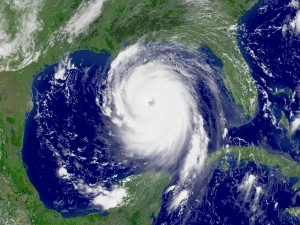There’s a story all over the Internet about how female-named hurricanes are deadlier than their male counterparts. Researchers determined that people don’t take the female storms as seriously and therefore don’t take the necessary safety precautions.
Mood music:
The headline writers are having a party over this, putting out such headlines as “The deadly sexism of hurricane naming” and “When Sexism Kills: Deadly Hurricane Edition.”
It’s one of the weirdest things I’ve seen of late.
The heart of the research involved the examination of death tolls from hurricanes that struck the US from 1950 to 2012. The researchers wrote in the Proceedings of the National Academy of Sciences:
Do people judge hurricane risks in the context of gender-based expectations? We use more than six decades of death rates from US hurricanes to show that feminine-named hurricanes cause significantly more deaths than do masculine-named hurricanes. Laboratory experiments indicate that this is because hurricane names lead to gender-based expectations about severity and this, in turn, guides respondents’ preparedness to take protective action. This finding indicates an unfortunate and unintended consequence of the gendered naming of hurricanes, with important implications for policymakers, media practitioners, and the general public concerning hurricane communication and preparedness.
When I first read through this, my reaction was that people are stupid. Some of the most vicious hurricanes of recent memory had female names, such as Katrina and Rita in 2005 and Camille in 1969. Thanks to modern meteorology, people had plenty of advanced warning about the first two storms and countless others. For days before these storms hit — male and female alike — you see people on the news planning for doomsday.
It makes the sexism about storms harder to believe. I also have trouble trusting the results because Katrina wasn’t included in the study. It was considered an “outlier,” an event so terrible that researchers thought its inclusion would skew the final result.
All that said, I can see how people might have taken earlier storms in the timeline too lightly. Sexism is still pretty bad today, but it was off the charts in the 1950s, ’60s, ’70s and ’80s. Maybe people were being stupid at the expense of their lives.
Still, I find studies like this useless.
What’s it going to accomplish today besides a few smart-ass headlines? If there are still dopes out there judging a storm’s dangerousness by its name, showing them a study won’t help.
I’d rather see researchers working on better ways to predict the path of these storms. Or ways to make stronger buildings that can stand up to Category 5 storms. Or devise more sensible evacuation plans that cause less panic.
That’s my two cents.



